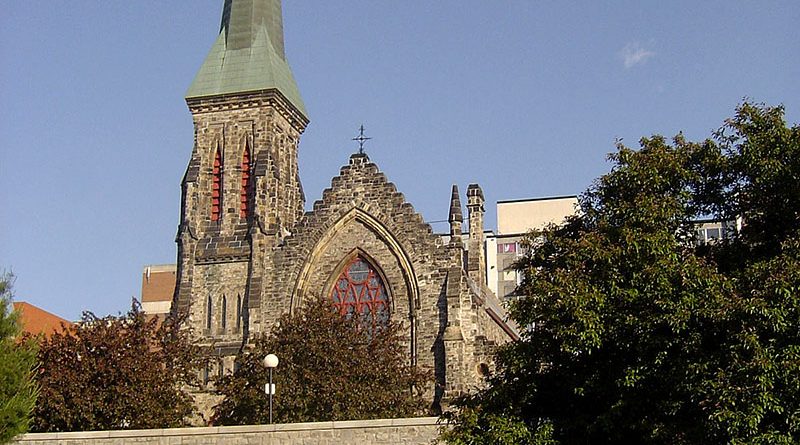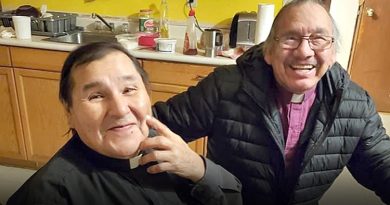Diocese of Ottawa: Cathedral appointment of non-Christian misguided
Comment by Sharon Dewey Hetke
FOR THE FIRST TIME in the history of the Anglican Church of Canada, a non-Christian has been appointed as a “Spiritual Teacher in Residence” at an Anglican Cathedral.
Albert Dumont will serve a two-year term at Christ Church Cathedral in Ottawa, at the request of Dean Shane Parker, and with the blessing of both Bishop John Chapman and Chief Jean Guy Whiteduck of Kitigan Zibi Anishinabeg.

In a Diocese of Ottawa press release, Dumont said he is “truly humbled” that Parker has put his trust in him “to share Indigenous ways of knowing with his community,” and added his hope that they “will learn from each other about the purpose of spirituality and of strong leadership.”
Neither inter-faith relationships nor thoughtful engagement with questions on the interaction between Indigenous and Christian spirituality are new to the Anglican Church of Canada. However, one particular comment by Dean Parker is attracting attention: In an interview with the Anglican Journal, Parker said, “Having Albert at [the] cathedral signals our mutual concern … to learn and to share from one another’s spiritual traditions, and recognize them as equivalent.”
Both the appointment of a non-Christian to a position of spiritual authority and the comment on equivalency are raising questions.
To describe Christianity and Indigenous spirituality as “equivalent” inevitably raises questions about core Christian teachings around the Incarnation, the uniqueness of Christ and the sufficiency of his death and resurrection for salvation. It also seems to diminish the power of the Gospel by identifying Christian faith with European (or at least non-Indigenous) culture, creating what might be seen as a false binary between the two practices.
Naturally, questions of missiology and evangelism also arise. In a 2012 interview with the Anglican Journal, Bp. Mark MacDonald (National Indigenous Bishop) said this: “The gospel of Jesus is infinitely translatable. Its horizon is not limited to the culture and religion of any one group. Its capacity is not bound to the mistakes of its would-be proclaimers and practitioners. Today, in many peoples, Indigenous and not, it is reaching for a new horizon.” In these comments, he recognized the challenges of this process of integration and reconciliation, but also held the Gospel of Christ at the centre of our walk together. Does not the language of “equivalency” impoverish this discussion?
Further, the Anglican Church of Canada now has 6 Indigenous bishops (and counting) and a great many Indigenous clergy. The position of National Indigenous Bishop, held by Bp. MacDonald, was created in 2007; the formation of an Indigenous church is also on the horizon and will be discussed more fully at General Synod 2019.
Across dioceses and communities there is also a variety of practice and discernment in terms of incorporating Indigenous traditions with Christian practice and rituals, and Bp. MacDonald has given leadership in describing the ways in which traditional Indigenous values and Christianity are in harmony with one another. The direction in which the Church seems to be going is one of Reconciliation, inspired by our Christian faith, and no doubt that work will continue.
Dumont, for his part, speaks movingly about his journey as a child who experienced racism, including from Church leaders. While his parents were Christians, at the age of 12 he moved away from that faith, eventually becoming immersed in Indigenous practices and spirituality. He has also struggled with and overcome alcoholism. Is there much for us to learn from Dumont? There can be little doubt of this, nor can we doubt that there would be numerous creative spaces in which that learning could be facilitated.
But does true reconciliation involve ceding our discussion of faith to the terms of cultural relativism? Or can we see and hope for MacDonald’s “new horizon” and find a better path, led by the many Indigenous Christian leaders with whom and through whom our Church is already being blessed? TAP




